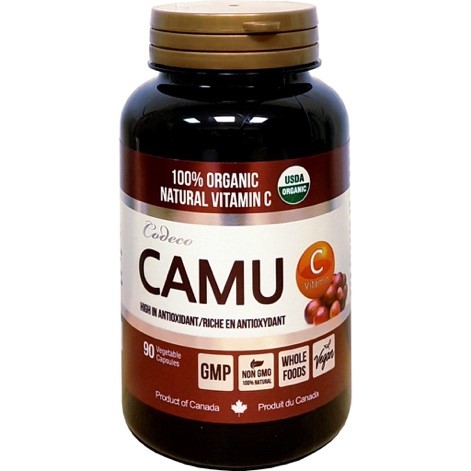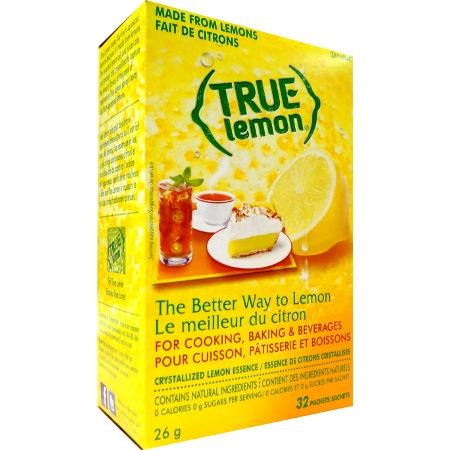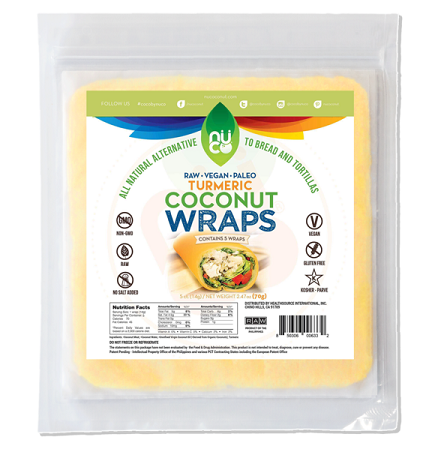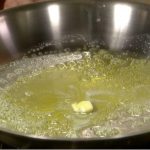
Boost Your Immune System – Eat The Right Foods
Boost Your Immune System through Diet
With the global COVID-19 outbreak and increased awareness for disease prevention, you may be wondering how to protect yourself from getting sick. The truth is that sometimes getting sick is out of our control, but one thing is for sure, we have some control over our bodies’ susceptibility to illness by doing whatever we can to help strengthen our immune systems. Having a healthy immune system can also reduce the severity of symptoms if you do get sick.
Your diet has a great effect on your immune system, and thus, your body’s response to illnesses. It is important to be conscious of the types of foods you are putting into your body so that you are feeding it immune-boosting foods rather than weakening your body’s response to illnesses. We will explore both types of effects below, so you can distinguish between foods that are immune-boosting versus foods that are immune-weakening.
When we get sick, something foreign has entered our body. So, the immune system – our body’s internal system of defense – must work extra hard to fight them off and protect the vital functions of the body. Besides getting enough oxygen, water and sleep, our bodies rely on the food we consume to provide everything else it needs to grow and stay healthy. Good foods provide nutrients, important substances that have a supportive effect on our overall health, like proteins, carbohydrates, fats, vitamins, and minerals. These nutrients give our bodies the strength to do more. This is why we need to consume enough nutrients, especially during times of increased vulnerability and susceptibility, to stay healthy and fight unwanted threats.
Nutrients that Boost our Immune Systems
Vitamins and minerals are essential for fighting off diseases and support healthy vision, skin, bones, and mental function. There are 13 essential vitamins that we need to consume from food because our bodies don’t produce them on our own. Most modern western diets are lacking in these nutrients, which is why it is important to pay attention to the nutrients – or lack thereof – you are getting from your diet. When in doubt, a daily multi vitamin should provide everything you need and fill in any gaps in your diet. That said, our bodies have an easier time absorbing nutrients from foods rather than supplements, so it’s best to go straight to the source!
The vitamins and minerals you need to be sure you are consuming to support your immune system are:
- Vitamin A
Vitamin A is involved in the protection of the eyes, lungs and gut, and the production of white blood cells. Foods rich in Vitamin A include eggs, orange and yellow fruits and vegetables and most dark leafy greens.
Vitamin C assists in the production of white blood cells, strengthens the skin’s defense mechanisms, and is involved in many other parts of the immune system. Vitamin C is commonly found in citrus and other fruits, but leafy greens, bell peppers, tomatoes and broccoli are some low-carb alternative vitamin C carriers.
Vitamin D helps regulate immune responses and has been shown to help reduce the risk of respiratory infections, including cold and flu. Vitamin D can be found in fatty fish such as tuna and salmon, as well as eggs, mushrooms and some fortified foods.
- Vitamin E
Vitamin E is a powerful antioxidant that can help fight off free radicals to prevent oxidative stress on the body. When the body is under oxidative stress, the immune system weakens. Adding Vitamin E to the diet has been shown to enhance the immune system, especially in older individuals. Vitamin E is commonly found in nuts, seeds and vegetable oils such as sunflower oil and soybean oil as well as green leafy vegetables.
- Folate/Folic acid
Folate helps to produce new cells and repair existing cells, which assists immune functions. Folate is found in most leafy green vegetables, eggs, avocados, okra and beans.
- Iron
Iron helps immune (healthy) cells proliferate and mature. Foods rich in iron include spinach, beans, beef, dark leafy greens and whole grain or enriched wheat products. Make sure to consume Vitamin C-rich foods along with iron-rich foods to increase absorption of the iron.
- Selenium
This antioxidant mineral helps lower oxidative stress and reduce inflammation to enhance immunity. Foods rich in selenium include brazil nuts, seafood, brown rice, lentil, and peas.
- Zinc
Zinc keeps the immune system strong, helps repair cells and supports the growth of new cells. Beef, flax seeds, pumpkin seeds, egg yolks and dark chocolate contain high levels of zinc.
It is important to eat a variety of foods rich in the above-mentioned nutrients daily, as the overall quality of your diet matters. If you are looking for immune-boosting superfoods, try these:
- Garlic has been recognized for centuries as an immune-boosting and infection-fighting food. When garlic is crushed, sliced or chewed, it produces a sulfur compound called allicin which helps the immune system fight germs (this also gives garlic its distinctive taste and smell). This not only helps white blood cells fight off viruses such as those that cause cold and flu, but it can also reduce your risk of becoming sick in the first place and the severity and longevity of illnesses.
- Turmeric. Turmeric is known for its anti-inflammatory properties that can help regulate the immune system.
- Camu camu. This berry is one of the most concentrated natural food sources of Vitamin C in the world.
- Aronia berry. Very high in antioxidants and has been shown to fight against harmful bacteria.
- Ginger can help reduce inflammation to ease cold and flu symptoms.
- Almonds have a very high Vitamin E content.
Let’s Make This Easy
The Low Carb Grocery carries a number of low carb products that can help boost your immune system and reduce your susceptibility to disease:
- The Garlic Box – Garlic-Infused Condiments
- Healthee Turmeric Drinks
- Guruji Fresh Raw Turmeric Juice
- Turmeric Wraps
- True Citrus 100% Natural Citrus Drink Mixes
- Real Pops Organic Vegan Popsicles – Lemon Ginger Turmeric
- Codeco Organic Camu Camu Veggie Capsules
- Anthony’s Goods Ground Ginger Root
- Vitamin E-Rich Sunflower Seed Crackers
- HoldTheCarbs Almond Flour Bake Mixes
Foods That Can Weaken Your Immune System
During times of increased susceptibility to infection, you want to reduce your intake of foods that are highly processed, refined or have added sugars. These foods can cause inflammation, which is actually an immune response to disease, injury or infection. The body releases chemicals from white blood cells to try to heal and repair damaged cells, while also fending off foreign invaders such as bacteria and viruses that like to target weak cells. For example, when you get a cut or a scrape, localized inflammation occurs to quickly heal and protect the area; this is observed as redness, swelling and pain in the affected area.
Some of the foods we eat can also cause inflammation. Consuming these types of foods can result in long periods of sustained inflammation, which can lead to a number of chronic diseases including heart disease, diabetes, arthritis and lupus. When your body is on high alert for long periods of time, it can cause damage to the healthy cells as well. On top of that, processed and refined foods are usually low in nutrients, meaning that your cells are not only being damaged, but they are also not getting the required substances to heal and grow. This can leave your body in a very vulnerable state that is highly susceptible to disease and infection.
Inflammatory foods include:
- Sugar – note that sugar can go by many names, such as fructose and sucrose. Avoid any foods with ingredients ending in “-ose”. Also avoid artificial sweeteners, such as aspartame, and opt for natural sweeteners
- Trans fats – fast food is often fried or cooked in oils high in trans fats, because they are the cheapest and most effective oils for these methods of cooking. Trans fat can also be found in most processed snack foods, cookies, donuts, crackers, chips and margarine. Avoid foods with “hydrogenated oils” in the ingredients list.
- Refined carbohydrates – this includes white breads, crackers, pastries, white potatoes, sweet breakfast cereals, etc.
- Excess omega-6 fatty acids – can be found in certain nuts, seeds and oils; so be sure to balance them with enough omega-3 fatty acids, found in things like salmon, avocado, and seaweed.
- Processed meats – often use artificial preservatives and have other added ingredients that can cause inflammation. Try The Low Carb Grocery’s naturally preserved meat snacks
Read our blog post about the difference between good and bad fats to learn more about some of the topics described above.
Additional tips:
- Avoid alcohol and tobacco. Both of these substances can damage the immune system and make you more susceptible to infections.
- Take a probiotic. Probiotics can promote healthy gut bacteria, which is essential for immune function.
- A 20-minute session of moderate-intensity exercise can stimulate the immune system, by releasing hormones that produce an anti-inflammatory response.
- Practice stress management. Stress can cause inflammation. So, you could be doing everything suggested in this article but if you are still feeling worry and stress, you could be throwing all your hard work out the window. Try taking walks, meditating, listening to music, writing down your thoughts, or talking to a close friend or relative if you feel overwhelming stress.
Do you agree with our lists?
If you liked our list, or would like to share other immune-boosting tips, leave us a comment on our Facebook page! We also love to stay connected through our Instagram, as well as our Weekly Newsletters for updates on the latest product sales and special announcements. And lastly, if you’ve had any experiences with The Low Carb Grocery, excellent or poor, please leave us a Google review!









